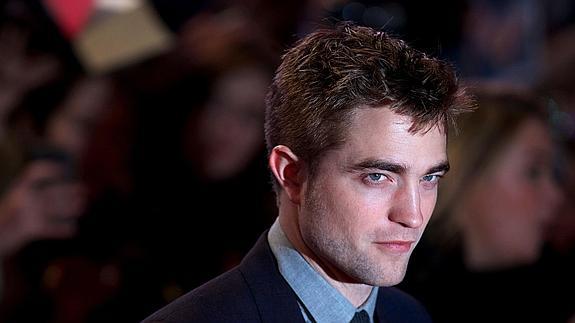
The hum began subtly, a low, anticipatory thrum that vibrated through the steel and glass of Incheon International Airport. It started with a whisper, then a ripple, before erupting into a synchronized, ecstatic roar. Robert Pattinson was coming. Not just any Robert Pattinson, but the grizzled, enigmatic star of Bong Joon-ho’s next dystopian masterpiece, Mickey 17, stepping onto Korean soil to unleash a new wave of cinematic intrigue and, inevitably, a delightful brand of global celebrity chaos.
From the moment his silhouette emerged from the customs gate, a flashbulb aurora ignited. It wasn't just the sheer volume of cameras, but the coordinated precision of the Korean press and a legion of devoted fans, each flash a staccato heartbeat. Pattinson, tall and elegantly dishevelled in a way only he could manage, blinked into the artificial sun of the arrival hall. His signature intensity, usually reserved for shadowy alleys or crumbling Gothic mansions, was momentarily softened by a genuine, if slightly overwhelmed, smile. He wasn't just an actor; he was a walking, breathing monument to a decade of reinvention, from teenage vampire heartthrob to arthouse darling to the Caped Crusader himself. Now, he was the cloned protagonist, Mickey 17, about to be introduced to a nation obsessed with narrative depth and cultural phenomenon.
The press conference was a masterclass in Korean efficiency and Hollywood spectacle. Against a backdrop of sleek, futuristic Mickey 17 graphics, Pattinson, flanked by interpreters, answered questions with his characteristic blend of thoughtful introspection and dry wit. The Korean journalists, known for their incisive and often philosophical inquiries, probed not just the plot mechanics of a film about a disposable clone, but the deeper existential questions it posed. Pattinson spoke of the challenge of embodying a character who constantly faces his own mortality, or rather, his replicability. He mused on the human desire for purpose, a theme that resonated deeply in a society that often grapples with its own rapid evolution and the search for identity within it. His voice, a low rumble, filled the elegant ballroom, each word translated and amplified, creating a bridge between his nuanced performance and the eager minds before him.
But the true spectacle lay beyond the polished veneer of official events. Seoul embraced him with a vibrant, almost tactile energy. One evening, after a whirlwind of interviews and promotional appearances, he found himself, almost by chance, caught in the twilight glow of Myeongdong. The neon veins of the city pulsed with life, the scent of street food—tteokbokki, gyeranppang—mingling with the faint perfume of cosmetics and the distant beat of K-pop. He watched, captivated, as a group of students meticulously choreographed a K-pop dance on a makeshift stage, their energy infectious. It was a fleeting, unscripted moment of immersion, a stark contrast to the sterile perfection of a film set or the controlled chaos of a press junket. Here, in the heart of Seoul, life unfolded in its technicolor glory, a living, breathing narrative as complex and compelling as any film.
The fan meet-and-greet was a testament to the passionate, organized devotion of Korean fandom. Thousands packed into the COEX convention hall, armed with custom lightsticks, banners emblazoned with Korean transliterations of his name, and hearts brimming with adoration. When he walked onto the stage, the roar was deafening, a tidal wave of affection that visibly moved him. He signed autographs, exchanged brief, heartfelt words, and attempted a few carefully rehearsed Korean phrases, much to the crowd's delight. A young fan, trembling, presented him with a meticulously drawn portrait of him as Mickey 17, capturing both his vulnerability and his steeliness. In that moment, the boundary between star and admirer dissolved. It wasn't just about the blockbuster; it was about the shared humanity, the connection forged across cultures through the universal language of storytelling.
As Robert Pattinson departed, the airport was a little quieter, the flashbulbs fewer, but the echo of his visit lingered. He left behind a city abuzz with anticipation for Mickey 17, a heightened sense of connection to Hollywood’s evolving landscape, and perhaps, a renewed appreciation for the power of cinema to transcend borders. And he, in turn, carried with him not just the memory of a successful press tour, but the vibrant tapestry of Seoul’s urban soul, the warmth of its people, and the profound resonance of a culture that understands, perhaps better than any, the art of illustration, whether on a silver screen or in the bustling, beautiful streets of its capital. He came to promote a film about identity and purpose, and in Korea, he found a mirror reflecting those very themes in a city pulsing with its own unique, unforgettable story.
